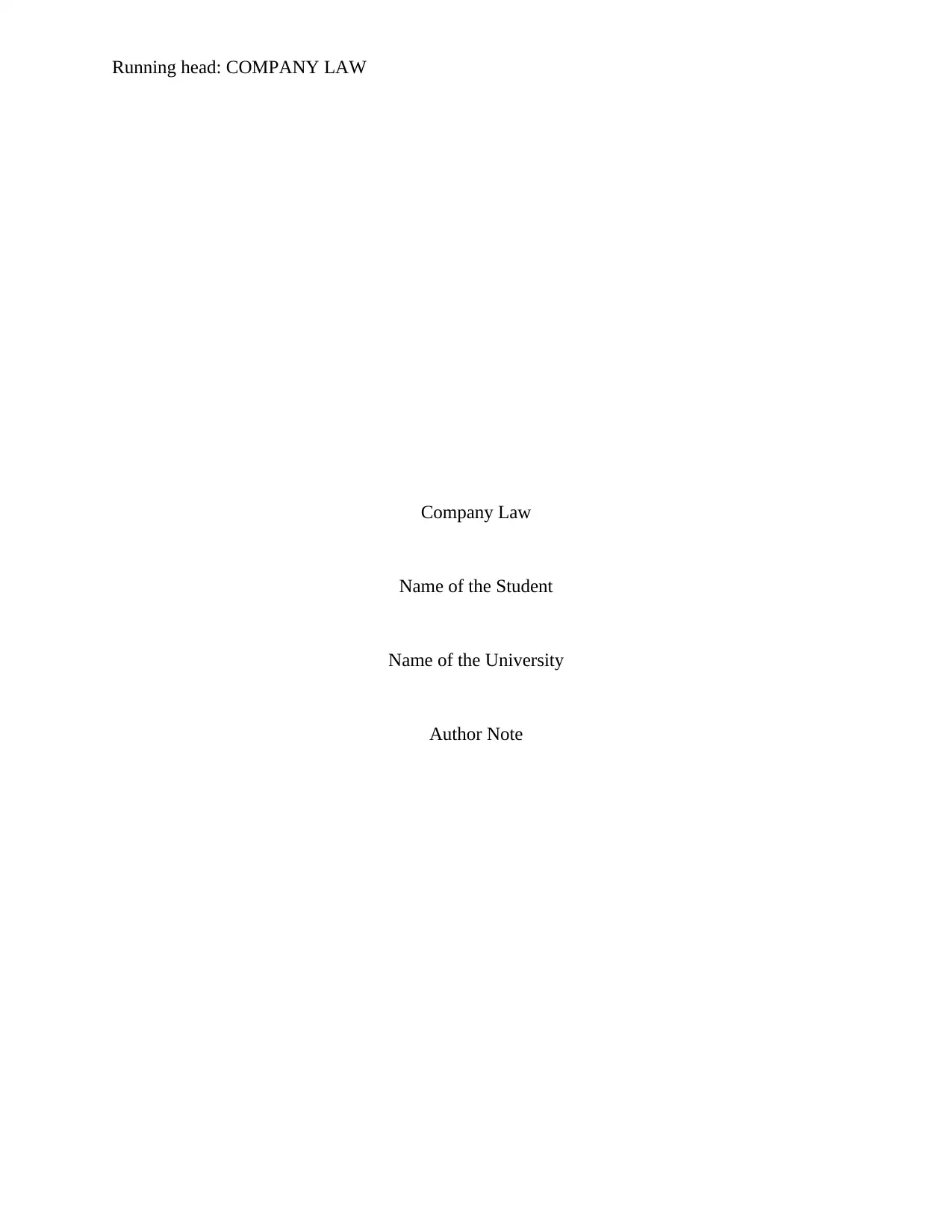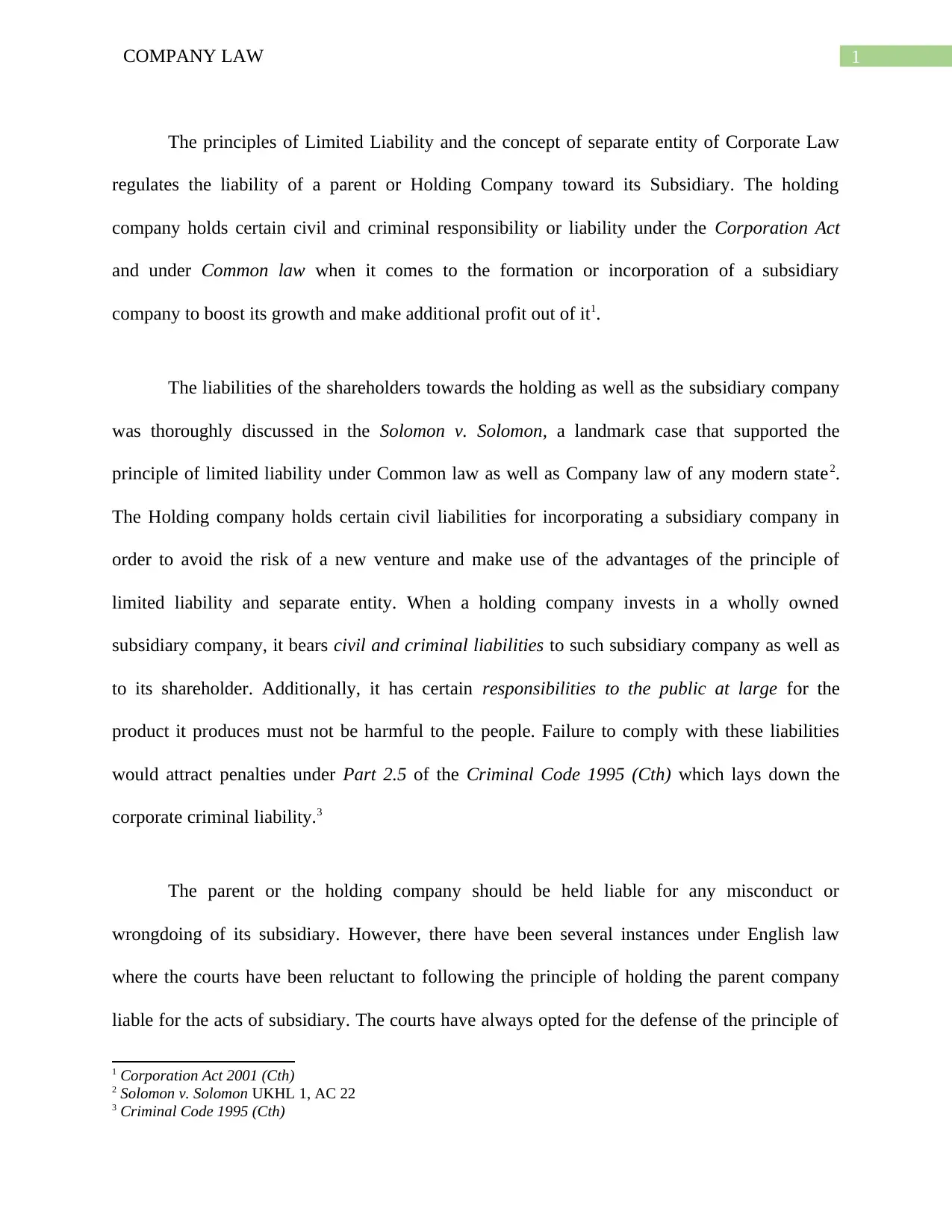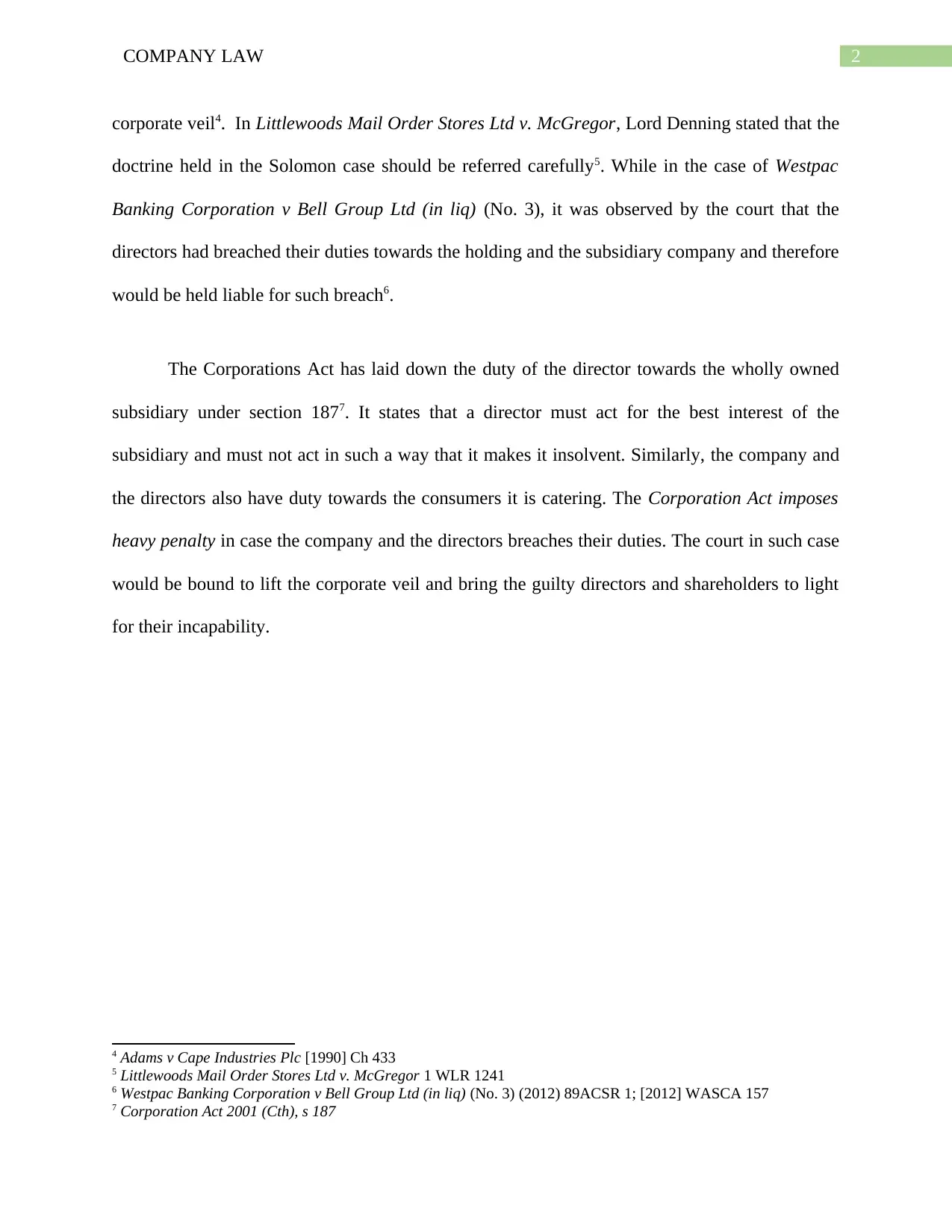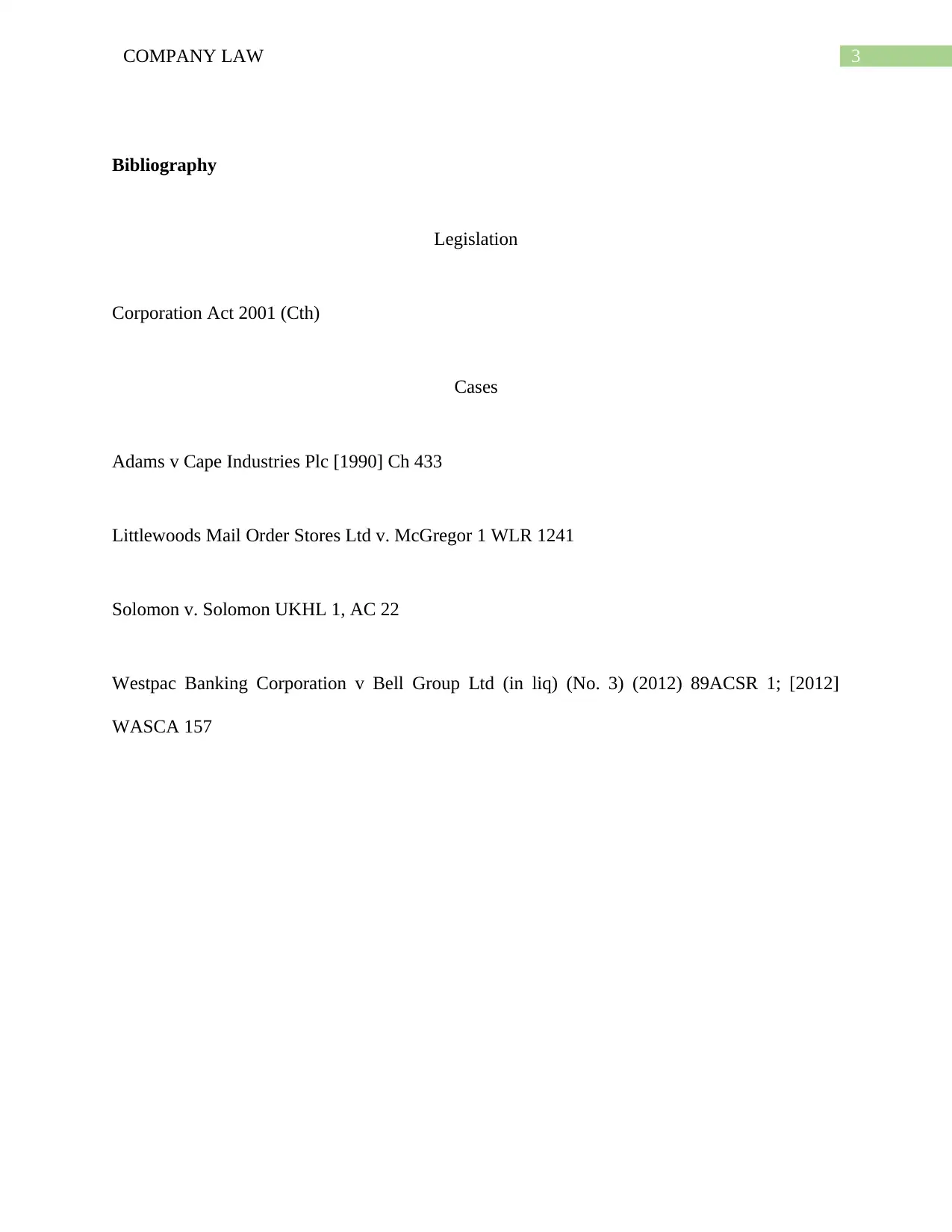Analysis of Company Law Principles: Liability and Subsidiaries
VerifiedAdded on 2023/06/03
|4
|660
|307
Report
AI Summary
This report examines the principles of company law, specifically focusing on the liabilities of holding companies towards their subsidiaries. It explores the concept of limited liability and the separate entity doctrine, referencing key cases like Solomon v. Solomon. The report discusses the civil and criminal responsibilities of holding companies under the Corporations Act and common law, including director duties and the potential for lifting the corporate veil. It highlights the importance of adhering to legal obligations to avoid penalties and protect the interests of shareholders, subsidiary companies, and the public. The analysis includes relevant legislation and case law, providing a comprehensive overview of the legal framework governing holding company liability and subsidiary relationships.
1 out of 4











![[object Object]](/_next/static/media/star-bottom.7253800d.svg)